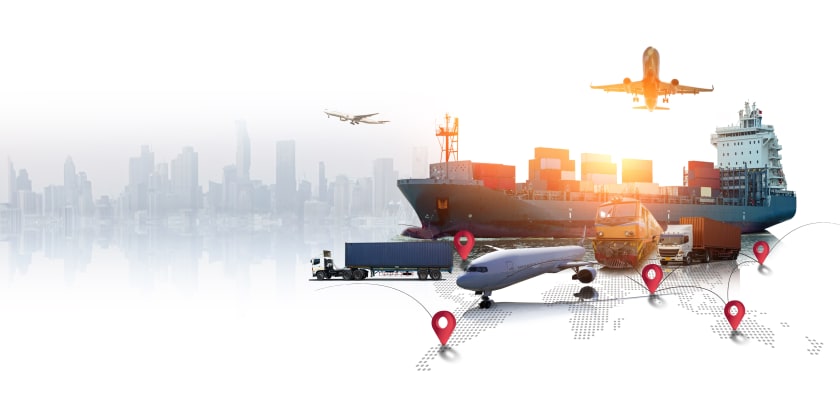How To Integrate Supply Chain And Logistics Into Your SAP Project



Summary: The nature of business is changing and that’s why companies need to adapt to the changes too by making business strategies more flexible and getting with the latest technologies. With the help of SAP Project systems, digitizing the supply chain and logistics is a possibility, and it is the most important thing to do to ensure your brand thrives in the modern economy.
nature of business is changing globally. Digitization is at the helm of the global industry and therefore companies need to adapt and get in sync with the times. Integrating your supply chain and logistics on System Applications and Products (SAP) is a great place to begin as this will ensure your business functions are backed with new-age technology.
Supply chain digitization is a critical factor for success for businesses because it allows them to be faster, more granular, more flexible, more precise, and more efficient. Explore how you can integrate your supply chain and logistics on SAP to digitize the entire production cycle of your goods.
What Is SAP Project?

SAP Project is a project management software tool. In the fashion industry, it helps manage order production (projects) throughout its entire lifecycle. Right from the creation of the order to the preparation of detailed plans, production, and completion, everything can be monitored when your supply chain and logistics are integrated into SAP.
Ways To Integrate Supply Chain & Logistics On SAP
It may seem a bit difficult to integrate your supply chain and logistics with new digital software. But, we’re here to help. Let’s take you through the entire process of how to get things started. Right from decision-making to execution, here’s exactly how you can begin enhancing your business with SAP Project System.
Envision Business Goals & Prepare A Plan
Digitalization can be a complicated process that requires time, attention, and solid planning and preparation. You need to first consider what is the desired outcome of digitizing your supply chain. Decide whether you want to lower operational costs, improve customer service, or if you want to increase brand visibility. Once you identify the major business goals that are driving the digitization of your supply chain, the digital transformation of your business can finally begin.
Digital technologies such as cloud supply chain management (SCM) can assist brands to digitize their supply chain. SAP, which is a cloud resource, will help improve supplier collaboration and manage your supply chain in real time once integrated.
Secure A Network Of Digitized Vendors
Begin by networking with manufacturers and suppliers that provide the ERP software you require to digitize the supply chain. The benefit of a digitized supply chain is that necessary information is shared efficiently with manufacturers, retailers, and logistics service providers in real-time.
It is, however, important to take note of the fact that digital communications also do put your business at certain cyber risks that could be detrimental to business. The OSI (Open System Interconnection) Model is a great program to ensure cybersecurity when the supply chain is digitized. The OSI Model builds a strong cybersecurity strategy plan for your business's supply chain which covers all the platforms of your business communications on the software and ensures data is safe and your supply chain is protected from cyber-attacks.
Dive Into Data Analytics

Develop analytic capabilities by training your employees within the supply chain in skills that will help them work with and interpret data on software. Vendors generate loads of data daily as they work on production and sourcing for your orders. This very data is crucial and it will allow you to understand how smoothly your supply chain is functioning on a day-to-day basis. When this data is laid out on a dashboard, it will also give you a clear view of the entire production process and grant insights that will help you make better strategic decisions for future business dealings.
However, if the vendors don’t know how to assimilate their daily data logs, you will miss out on essential data insights and transparency of the production process. Through SAP Project systems you can avail of the Asset Intelligence Network that will help effectively collect data from the stakeholders within your supply chain. This feature will help your business build a data bank that will provide clear information on the various stages of production.
Welcome Automation Of Processes
Fashion companies need to consolidate various systems and procedures together to digitize the supply chain. The main goal is to promote the exchange of data seamlessly between various stakeholders involved in the stages of production of orders. It is easier for businesses that have already adopted Industry 4.0 to make the transition to supply chain 4.0 as well. A supply chain that is backed by Industry 4.0 solutions will encourage a better flow of goods between manufacturers, suppliers and retailers.
Supply chain 4.0 will make the planning process for the movement of goods between stakeholders a breeze. Since buyers and suppliers today are making use of digital automated procurement tools over manual purchasing (which is a dated process), it makes sense to get with the times and integrate the supply chain into an SAP project module. Cloud-based sourcing platforms like the SAP Project system are backed by AI tech and will help automate the operations of your supply chain.
SAP Integration: The Way Forward
Integrating the supply chain and logistics with SAP will help make digitization of the production process a breeze. It will also give your business an edge and make it more adaptable to change and technological advancements.
Key Takeaways
- The nature of business is changing globally as companies are adopting a digital approach to doing business.
- SAP is a cloud resource software that is available for fashion companies to digitize their supply chain and logistics.
Fashniza is a fashion tech company that provides AI solutions for fashion companies so that they are equipped to function efficiently in the modern world of business. Integrated with industry 4.0, Fashniza also offers a network of vetted manufacturers and suppliers which makes it easier for fashion companies to adopt supply chain 4.0.
Head to Fashinza.com to thrive in the fashion industry with modern technological solutions.



















